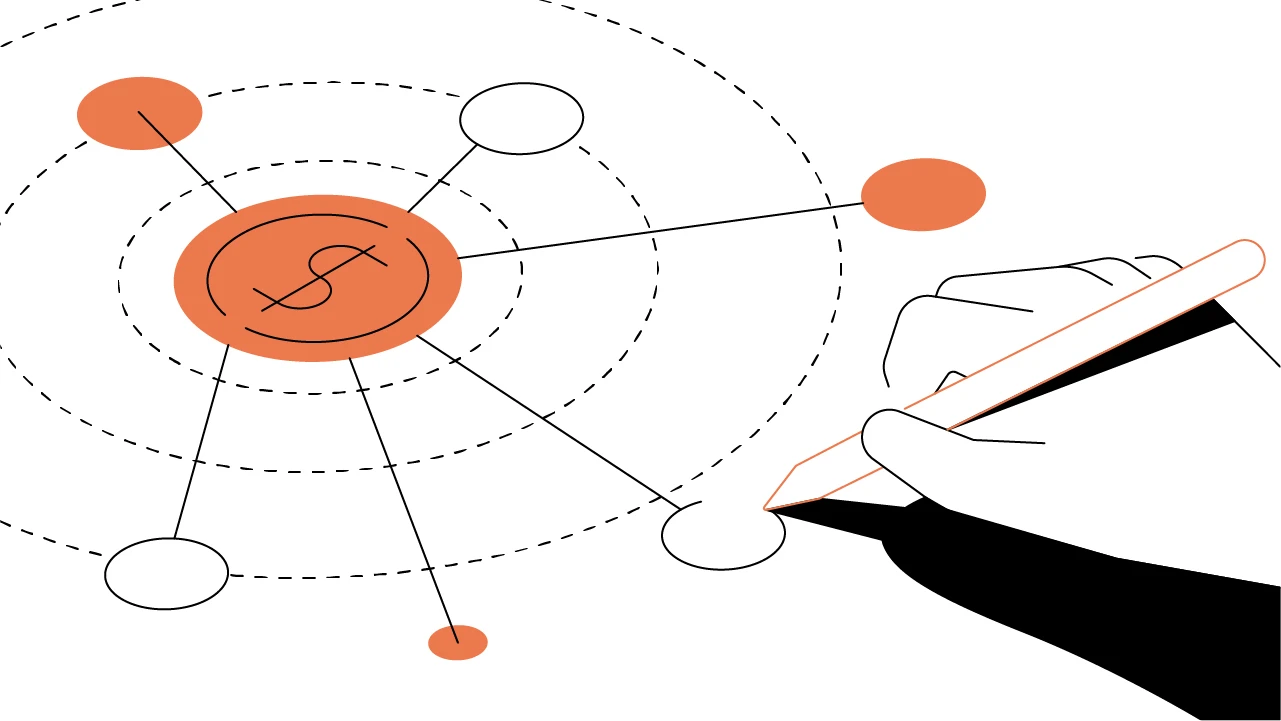Contents
How MakerDAO Pioneered Decentralized Finance
As a decentralized, liquid, and composable digital asset with ubiquitous network effects, MakerDAO is one of the most useful cryptocurrency protocols.
Updated October 16, 2023 • 3 min read

Summary
MakerDAO is the creator of the Maker Protocol, an open-source, Ethereum-based platform that generates the Dai stablecoin — the most widely used asset in the decentralized finance ecosystem besides ETH, Ethereum’s native token. In providing a decentralized, composable, and stable store of value in Dai, MakerDAO has become a foundational pillar of DeFi. More than 400 platforms have integrated the Dai token, with billions in assets locked in the protocol. MakerDAO is managed by the MKR governance token. Our previous article provided an overview of MakerDAO, while this piece offers a deeper dive.
MakerDAO is an Ethereum-based protocol that issues the Dai algorithmic stablecoin, which is soft-pegged to the U.S. dollar. The Maker Protocol enables you to redeem Dai in return for depositing Ethereum-based tokens as collateral. The organization was launched in 2015, and was one of the few to eschew ICO funding in favor of focusing on sustainable product development. An early adopter and pioneer in the Ethereum ecosystem, MakerDAO has grown into a foundational pillar of decentralized finance (DeFi). Today, Dai is usable on over 400 platforms, with nearly $2 billion worth of value locked in the protocol as of October 2020.
But how exactly has Dai fueled the rapid expansion of the DeFi ecosystem?
MakerDAO and Dai Stablecoins Are Fully Decentralized
MakerDAO’s revolutionary contribution to DeFi is the creation of a fully decentralized stable store of value with which to transact. There are myriad stablecoins available to DeFi users, including Bitfinex’s Tether (USDT), Gemini’s Gemini Dollar (GUSD), and Coinbase’s USD Coin (USDC). However, these stablecoins are issued and controlled by a centralized authority that is responsible for asset reserves and issuance.
MakerDAO offers a completely decentralized alternative in asset-backed stablecoins. Anyone can use the protocol to redeem or loan Dai, and no one entity controls its issuance. Instead, the protocol is governed by holders of the MKR governance token, who vote on protocol management via the Maker decentralized autonomous organization (DAO). The DAO votes on changes to the system, such as adjusting fees and adding loans with types of collateral loan. Although Dai is by no means the only decentralized stablecoin option, it is by far one of the most liquid and ubiquitous.
Dai Stablecoins Provide DeFi With a Stable Store of Value
Dai functionality in DeFi is multifaceted. To offer services like peer-to-peer consumer loans, DeFi platforms must have a low-volatility asset with which to transact. Issuing a loan in bitcoin or ether would mean that the value of the loan could fluctuate with the markets, causing instability. Dai, with its stable value, solves this issue. Likewise, Dai is also useful for decentralized exchanges (DEXs) like Uniswap, which are critical apparatuses in the DeFi ecosystem. DEXs often do not allow users to transact with fiat currency, which can pose problems for traders who wish to convert riskier assets into safer assets. Excluding fiat transactions can also make it difficult for traders to track their earnings if their base trading pair experiences volatility while they are trading. Dai stablecoins offer a solution to these problems in providing a currency that tracks the value and stability of the U.S. dollar, creating a safe haven asset and low volatility trading pairs in a decentralized manner.
MakerDAO and Dai Are Composable
If you’ve spent any time exploring the DeFi ecosystem, you’ll likely have heard about one of its most important characteristics: composability. Composability is a design feature that allows elements of a system to be easily connected to and iterated upon by other systems. MakerDAO is highly composable because it is an open-source project, which means anyone can read, copy, and build upon its code, and it also provides in-depth developer tutorials. DeFi developers can therefore easily integrate Dai into their applications and build upon the MakerDAO protocol’s infrastructure, simultaneously tapping into its vast user base.
Because Dai has been widely integrated into other projects, it is also liquid. Liquidity is an essential condition for user-friendly DeFi projects, but is notoriously difficult to bootstrap. Integrating Dai and its economy solves this problem for companies who would rather focus on building a product than a currency.
As a stable, decentralized, liquid, composable digital asset with widespread network effects and developer focus, Dai has established itself as one of the most functional cryptocurrencies in all of blockchain.
Dai Challenges
Since its launch in 2017, MakerDAO has faced market circumstances that have, at times, resulted in its value not tracking the U.S. dollar exactly. For example, after a period of extreme market volatility in March 2020, Dai’s price increased to $1.10. Likewise, the popularity of yield farming has driven demand for Dai and other stablecoins, resulting in a price increase. For most cryptocurrencies, asset value going up is always a good thing. For an algorithmic stablecoin like Dai, it’s a sign that the protocol is not functioning perfectly. MakerDAO has since implemented a system of monetary levers to minimize future risk. Nonetheless, Dai remains a critical infrastructure for DeFi, and MakerDAO a stalwart of Ethereum development.
Cryptopedia does not guarantee the reliability of the Site content and shall not be held liable for any errors, omissions, or inaccuracies. The opinions and views expressed in any Cryptopedia article are solely those of the author(s) and do not reflect the opinions of Gemini or its management. The information provided on the Site is for informational purposes only, and it does not constitute an endorsement of any of the products and services discussed or investment, financial, or trading advice. A qualified professional should be consulted prior to making financial decisions. Please visit our Cryptopedia Site Policy to learn more.

Is this article helpful?


